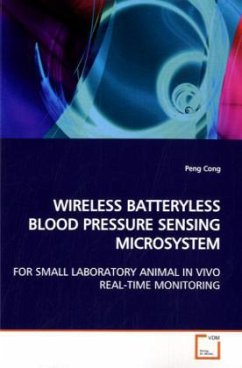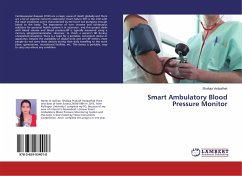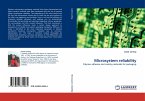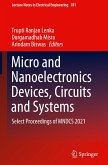Cardiovascular diseases are the number one cause of
death and disability in the United States and most
European countries. Real-time chronic blood pressure
information of genetically engineered mice can help
scientists understand the diseases and to develop
new drugs and treatments for the diseases. However,
there is no adequate solution for chronic blood
pressure monitoring to date due to small laboratory
mouse size and their small blood vessel dimension.
By merging MEMS technology and low-power CMOS
integrated circuits design through a high level
system integration together with a conventional
molding-based packaging technique, miniature, light-
weight, wireless, batteryless, less-invasive, and
implantable blood pressure sensing microsystems have
been demonstrated for untethered small laboratory
animals real-time monitoring. The microsystems
designed for laboratory rats and mice monitoring
presented in this book exhibit a weight of 430mg and
130mg, respectively. Untethered laboratory animals
implant study demonstrates the microsystem
capability of capturing real-time high-fidelity
blood pressure information under a wireless and
batteryless condition.
death and disability in the United States and most
European countries. Real-time chronic blood pressure
information of genetically engineered mice can help
scientists understand the diseases and to develop
new drugs and treatments for the diseases. However,
there is no adequate solution for chronic blood
pressure monitoring to date due to small laboratory
mouse size and their small blood vessel dimension.
By merging MEMS technology and low-power CMOS
integrated circuits design through a high level
system integration together with a conventional
molding-based packaging technique, miniature, light-
weight, wireless, batteryless, less-invasive, and
implantable blood pressure sensing microsystems have
been demonstrated for untethered small laboratory
animals real-time monitoring. The microsystems
designed for laboratory rats and mice monitoring
presented in this book exhibit a weight of 430mg and
130mg, respectively. Untethered laboratory animals
implant study demonstrates the microsystem
capability of capturing real-time high-fidelity
blood pressure information under a wireless and
batteryless condition.








